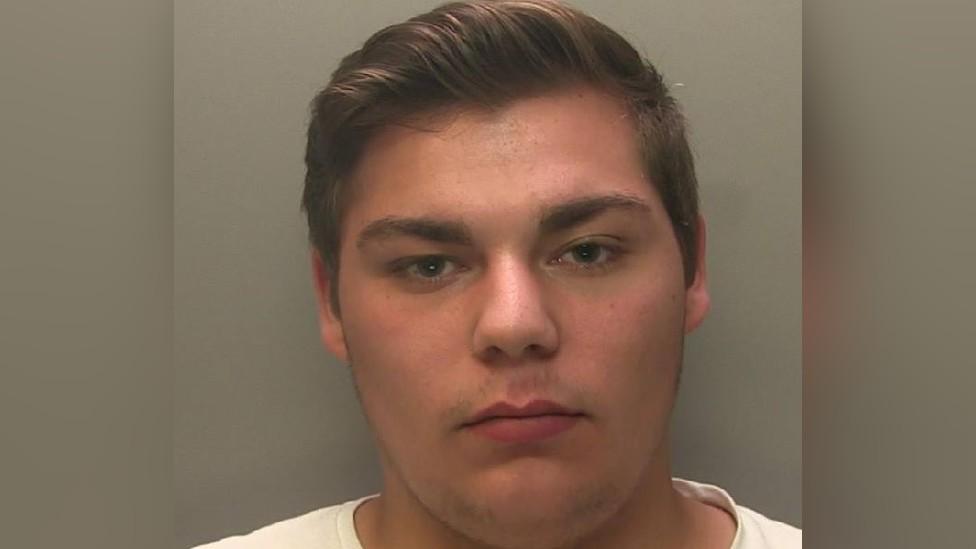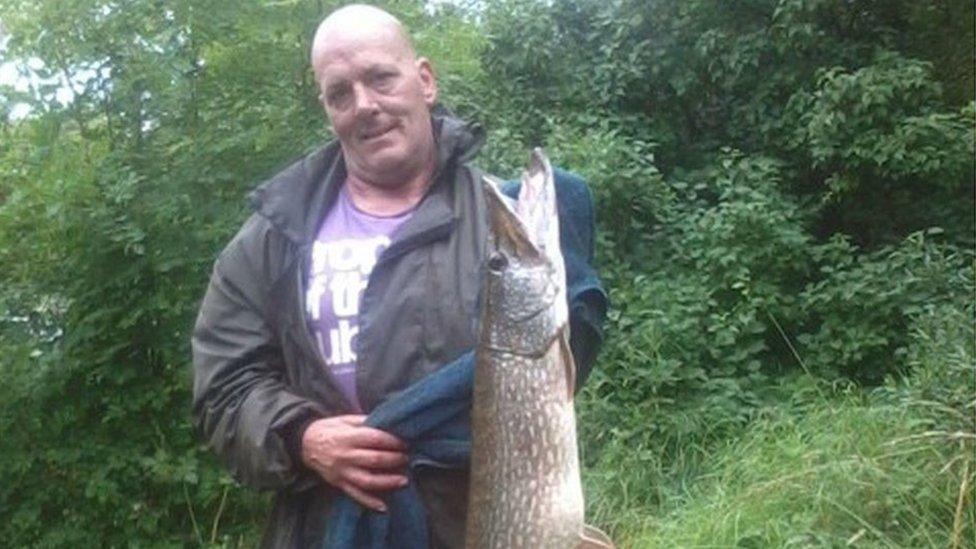Lenny Crawt: Murderer killed himself after prison transfer
- Published

Lenny Crawt was "very upset" when he was told he would be moving away from his brother, the report said
A teenage murderer killed himself after he was transferred to a different prison away from his brother, a Prisons and Probation Ombudsman report said.
Brothers Lenny and Shane Crawt were sentenced to a minimum of 15 years in 2019 for the murder of Scott Wilkinson.
Lenny, 19, was pronounced dead in his cell at HM Aylesbury Young Offender Institution on 16 May 2020, 15 days after he arrived from High Down Prison.
The report, external said there was a "missed opportunity" to identify suicide risk.
It also raised concerns about a delay in CPR and calling an ambulance.

Scott Wilkinson was attacked while fishing on "Donkey Island"
Fisherman Scott Wilkinson suffered "catastrophic head injuries" when he was attacked near Sunbury Lock in Surrey on 27 July 2016.
Lenny and his older brother Shane were convicted of his murder, while their cousin Charlie Smith was sentenced at Guildford Crown Court for manslaughter.
The brothers had been two cells apart at High Down Prison, near Sutton in Surrey, since January 2020, the ombudsman report said.
They were described as "inseparable" and an officer said Lenny was "very upset and teary" when he was told of his transfer on 1 May 2020.
Lenny told an officer he would harm himself or take an overdose if staff tried to make him move, the report said.
Staff then unlocked Shane and allowed the brothers time to talk in reception, after which Lenny agreed to go to Aylesbury.
An officer recorded the morning's events on Lenny's prison record but said he did not consider starting the prison service's suicide and self-harm prevention procedures, known as ACCT, as he believed the earlier threat had been dealt with.
'Anxiety and depression'
Later that day, Lenny arrived at Aylesbury and entered a two-week quarantine period due to Covid measures.
He was referred to the mental health team, with the head of safety stating he had "anxiety and depression".
Records show that when his quarantine period ended on 15 May, Lenny did not leave his cell to exercise, collect medication, shower or collect his lunch.
"It appears that he did not leave his cell all day," the report said.
At about 05:40 BST on 16 May, Lenny was found unresponsive in his cell by an officer.
The officer radioed a medical emergency code but did not start CPR, the report said.
Other officers then arrived and started CPR and an ambulance was called at 05:47. Paramedics arrived but he was pronounced dead.
The ombudsman said the governor of Aylesbury Young Offender Institution needed to "ensure that all prison staff are made aware of and understand their responsibilities during medical emergencies".
It also recommended that staff have "meaningful contact" with prisoners and "identify those who might be vulnerable to suicide and self-harm".
For High Down Prison, the ombudsman said staff should directly contact the receiving prison in a transfer when "new risk information is available".
The Prison Service said its thoughts remained with the family and friends of Mr Crawt.
"Since his death in 2020 we have implemented the PPO's recommendations and further training in suicide and self-harm has been provided to staff," a spokesman said.

Find BBC News: East of England on Facebook, external, Instagram, external and Twitter, external. If you have a story suggestion email eastofenglandnews@bbc.co.uk, external
Related topics
- Published13 March 2019
